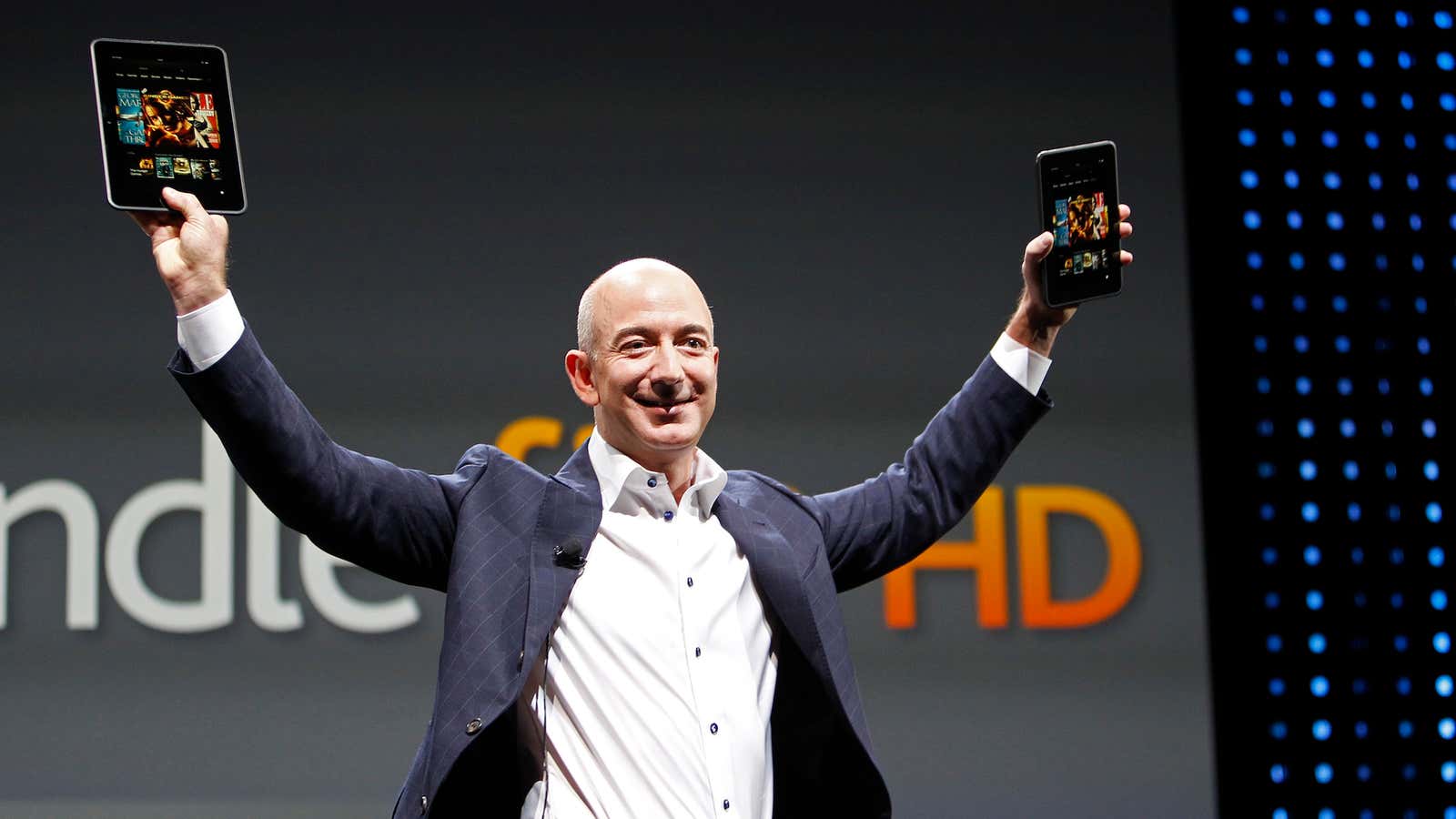This item has been updated.
Online retail giant Amazon has been inching toward having a physical retail presence in the US and UK through the installation of lockers at grocery stores, drug stores and other retail locations, like 7-Eleven, Staples, Walgreens and RadioShack. Amazon users can place orders online that are delivered to the lockers, avoiding hassles such as missed deliveries.
But instead of setting up lockers at various random locations, Amazon could establish a broad physical presence for dirt cheap with one bold move: It could buy RadioShack.
The US electronics retailer has lost more than 80% of its value in three years and is now worth just $325 million on the market. RadioShack has more than 4,400 stores in the US alone and 90% of them are within a two mile-radius of city and town centers.
The scenario of Amazon acquiring an ailing brick-and-mortar retailer like RadioShack, Sears or Best Buy (the latter two of which have market caps in the $5 billion range), has been talked about in the tech and dealmaker community. Such a move could give Amazon regional warehouses, a place for customers to pick up deliveries, and a storefront for popular items.
These locations could help Amazon as it expands into areas such as groceries that could benefit from same-day delivery or pickup. They might even become virtual showrooms where shoppers can place orders.
Assuming it went down this path, Amazon might want bigger locations than RadioShack stores could provide. Failed department stores, for example, could serve as warehouses and distribution centers too.
One reason for Amazon to not do this is that by retailing online, it has avoided having to collect state sales tax for many consumers, giving it an edge over retailers with physical stores. But that is changing. Amazon recently said it would support a bill before the Senate that would allow states to charge sales tax for online purchases. And it already collects sales tax in about half of all states now anyway.
(Update: Former Associated Content (now known as Yahoo! Voices) CEO Patrick Keane suggested on Twitter that Amazon could stock stores with different items based on what customers in that zip code are ordering. Each store could be tailored to the buying habits of that geographic area.)
A RadioShack acquisition could also make sense for Google. The 9to5 blog network reported that Google is planning to open retail stores in time for the holidays this year. The search giant in November announced that it was buying Canada’s BufferBox, which offers a similar locker system to Amazon’s. Google could use RadioShack stores not just as e-commerce delivery locations but also as sales centers for the growing number of devices it either produces or provides software for—think Apple stores, but for Android smartphones and tablets or ChromeBook laptops.
RadioShack was the focus of deal talks in 2010, but private equity firms decided against a buyout because they saw little hope in the retailer’s future. Back then, RadioShack had a market value of about $2.7 billion, more than eight times its current level. In October, the company reported a net loss of $47 million and is scheduled to release its next earnings results on Feb. 26.
The company just got a new CEO, Joseph Magnacca of drugstore chain Walgreens. It may resist a sale to give him time to try to turn RadioShack around. Magnacca is known for revamping the drugstores of Duane Reade, a Walgreens subsidiary.
But customers go to drugstores all the time for miscellaneous household items. The same can’t be said of RadioShack, which has struggled to get consumers to think of it as a go-to place for consumer electronics. If Magnacca cannot turn RadioShack around, Amazon could be its savior instead.
(We contacted both companies, but RadioShack declined to comment, and Amazon did not respond to a request for comment.)




